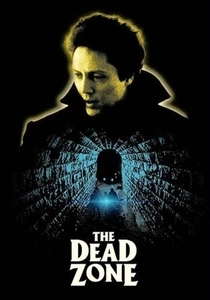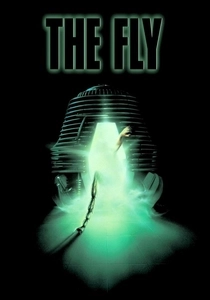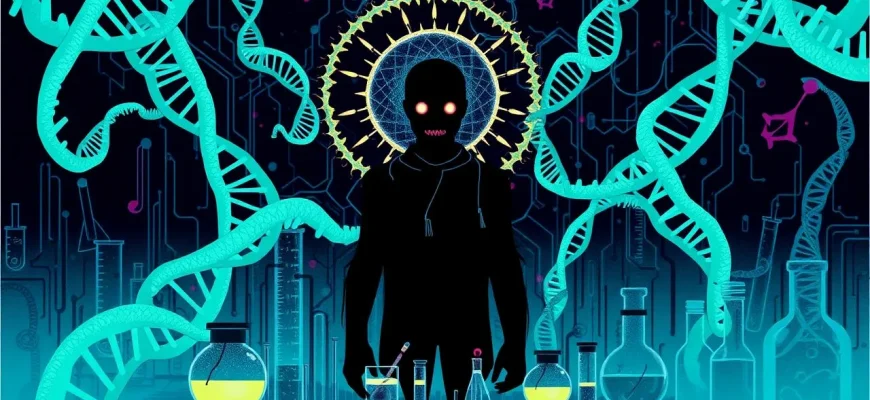Genetic experimentation has always been a fertile ground for horror filmmakers, providing a chilling blend of science gone awry and the monstrous results that follow. This curated list of 10 horror films delves into the dark side of genetic manipulation, offering viewers a mix of suspense, terror, and ethical dilemmas. From classic tales to modern nightmares, these movies explore the consequences of playing God with DNA, making for a thrilling watch for those fascinated by the intersection of science and horror.

Frankenstein (1931)
Description: While not explicitly about genetic experiments, this classic horror film deals with the creation of life through non-traditional means, setting a precedent for genetic horror themes.
Fact: The film was one of the first to use sound effectively in horror, with the iconic line "It's alive!" becoming a cultural touchstone.
 Watch Now
Watch Now 
The Dead Zone (1983)
Description: Although not directly about genetic experiments, it involves a man who wakes from a coma with psychic abilities, exploring themes of fate and the manipulation of life's course.
Fact: Directed by David Cronenberg, known for his body horror films, this movie delves into psychological horror.
 Watch Now
Watch Now 
The Fly (1986)
Description: A scientist's experiment with teleportation goes horribly wrong when he accidentally merges his DNA with that of a housefly, leading to a grotesque transformation. This film is a cornerstone in the genre, showcasing the terrifying potential of genetic splicing.
Fact: The film's special effects were groundbreaking for its time, earning it an Academy Award for Best Makeup. The transformation scenes were so realistic that they reportedly caused some viewers to faint.
 Watch Now
Watch Now 
Species (1995)
Description: A team of scientists must stop an alien-human hybrid, created through genetic engineering, from mating with humans and potentially wiping out the human race.
Fact: The film's creature design was inspired by H.R. Giger's work on the "Alien" franchise, giving it a unique and unsettling aesthetic.
 Watch Now
Watch Now 
The Island of Dr. Moreau (1996)
Description: A shipwrecked man discovers an island where a mad scientist has been conducting genetic experiments, creating human-animal hybrids. This film explores the horror of genetic manipulation and the ethics of playing God.
Fact: The film had a notoriously troubled production, with multiple directors and script changes, leading to a unique but controversial final product.
 Watch Now
Watch Now 
Mimic (1997)
Description: Scientists genetically engineer a species of insect to combat a deadly disease, but the insects evolve to mimic humans, leading to a terrifying hunt in the dark underbelly of New York City.
Fact: The film was directed by Guillermo del Toro, who is known for his love of insects, which heavily influenced the creature design.
 Watch Now
Watch Now 
Splice (2009)
Description: Two genetic engineers create a new organism using human DNA, but their creation, Dren, evolves into something far beyond their control, raising ethical questions about the boundaries of science.
Fact: The film was inspired by real-life genetic experiments, and the creature design was influenced by various animal species, including a mix of human and animal features.
 Watch Now
Watch Now 
The Abominable Dr. Phibes (1971)
Description: While not strictly about genetic experiments, this film features a mad scientist using bizarre and horrific methods to exact revenge, touching on themes of medical ethics and the consequences of scientific hubris.
Fact: The film's elaborate set designs and Vincent Price's over-the-top performance have made it a cult favorite.
 30 Days Free
30 Days Free 
Re-Animator (1985)
Description: A medical student discovers a serum that can reanimate the dead, leading to chaos and horror as he experiments with bringing back the deceased.
Fact: The film was based on H.P. Lovecraft's story "Herbert West–Reanimator," and its mix of horror and dark comedy has made it a cult classic.
 30 Days Free
30 Days Free 
The Fly II (1989)
Description: The sequel to the original "The Fly," this film follows the son of Seth Brundle, who inherits his father's genetic mutations, leading to a horrifying transformation.
Fact: Despite being a sequel, it explores new themes of isolation and the ethics of genetic legacy.
 30 Days Free
30 Days Free 








